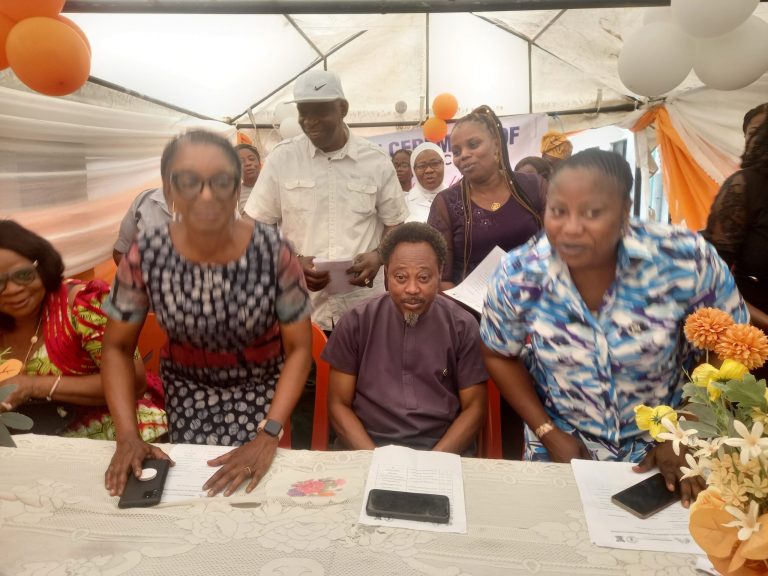A public health physician and senior lecturer at the University of Lagos, Dr. Adedoyin Ogunyemi, has called for the expansion of health insurance coverage for older adults in the state.
Ogunyemi, who is also a co-principal investigator for the implementation of an age-friendly clinic, disclosed that chronic conditions are more common among older adults, who constitute 11 percent of the state’s population.
She made this statement during the flag-off of the age-friendly clinic at the Primary Health Centre in Oregun, Ikeja, Lagos, on Thursday.
This project, organized in partnership with the Lagos State Government and Northwestern University’s Institute for Global Health (USA), is funded by Robert J. Harvey.
Dr. Ogunyemi said, “We are formally launching the age-friendly clinic at Oregun PHC. Today marks the implementation of a project that began two years ago.
The challenge with Primary Health Centres (PHCs) across the state is that they are not well-equipped to handle the specific needs of older adults.
Older adults present with unique health issues and often have mobility challenges, requiring special treatment.
Chronic conditions are indeed more common among older adults. Many of these conditions cannot be cured, so management becomes crucial.
This is why we invited LASHMA to our stakeholders’ meeting. With insurance in place, they won’t need to pay out of pocket.
We hope that the state health insurance scheme will expand to cover more chronic conditions, including medications for hypertension and diabetes.
Currently, insurance is available for older adults who are state indigenes and are vulnerable or may lack financial means, but this coverage should be extended to include a larger number of older adults.
NGOs can contribute significantly, as the current funding has only allowed for this much progress. The initiative can be scaled beyond this single facility.
We can also provide treatment and screening for older adults. When treatment is unaffordable, the consequences can be severe.
We need to prioritize the needs of older adults. In the next decade or two, their population will surpass the current figures. About 11 percent of our population is currently older adults, but this number will double in a few years. Without adequate facilities, everyone will be affected.
Initially, we assessed 15 PHCs to determine if healthcare workers had been trained in managing the health conditions of older adults.
According to WHO standards, facilities such as access ramps at PHC entrances, spacious reception areas with comfortable seating, and prioritization in consultations and laboratory services were lacking.
We also found that existing facilities are average in this regard. In terms of training, healthcare providers have minimal experience in elderly care. Some facilities have infrastructure in place, but not specifically for older adults.
During our research, we asked older adults about the obstacles they face when accessing health services, and many reported issues with prioritization and both physical and financial access.
We also held a stakeholders’ engagement led by the Permanent Secretary of Health District VI, along with other directors and staff from Oregun PHC. We selected one PHC to pilot an intervention and invited older adults to discuss ways to make care more accessible.
From that meeting, several issues were identified and are being addressed. For example, we have trained some staff at Oregun PHC on medical conditions commonly affecting older adults, such as hypertension, diabetes, and amnesia.
While some conditions may be beyond the PHC’s capabilities, training will help staff identify and refer cases to appropriate hospitals.
Another outcome of the meeting was the creation of a comfortable space for older adults to promote brain health, social connection, and physical activity.
Loneliness is a significant challenge for older adults, which is why we have provided traditional games and tents at Oregun PHC.
This space allows them to engage in brain games and exercise. We see this as a work in progress and hope to continue evaluating its effectiveness.
The Permanent Secretary of Health District VI, Dr. Cecilia Mabogunje, announced that the Lagos State Government is prioritizing the healthcare needs of the elderly.
ALSO READ: #EndBadGovernance protest: NHRC condemns teenager’s killing by Soldier
She also revealed that the government has upgraded PHCs to better address the health needs of those aged 60 and above.
In her address to senior citizens, Dr. Mabogunje said, “Historically, older adults have received special care at health centres.
Since the creation of the district, we have ensured that this care meets their specific needs. Many older adults have hypertension, diabetes, and other age-related conditions.
We are closely examining these challenges and are establishing clinics that cater specifically to their needs, even outside normal clinic hours.
This partnership with Northwestern University, USA, is timely and valuable, providing specialized care for the elderly.
Lagos has conducted numerous outreach programs for older adults, including the Ilera Eko health insurance scheme, which offers an elderly package. Registration for this scheme will grant access to most of these benefits.”
Various health checks, including tests for diabetes and high blood pressure, were conducted on the elderly individuals present.
